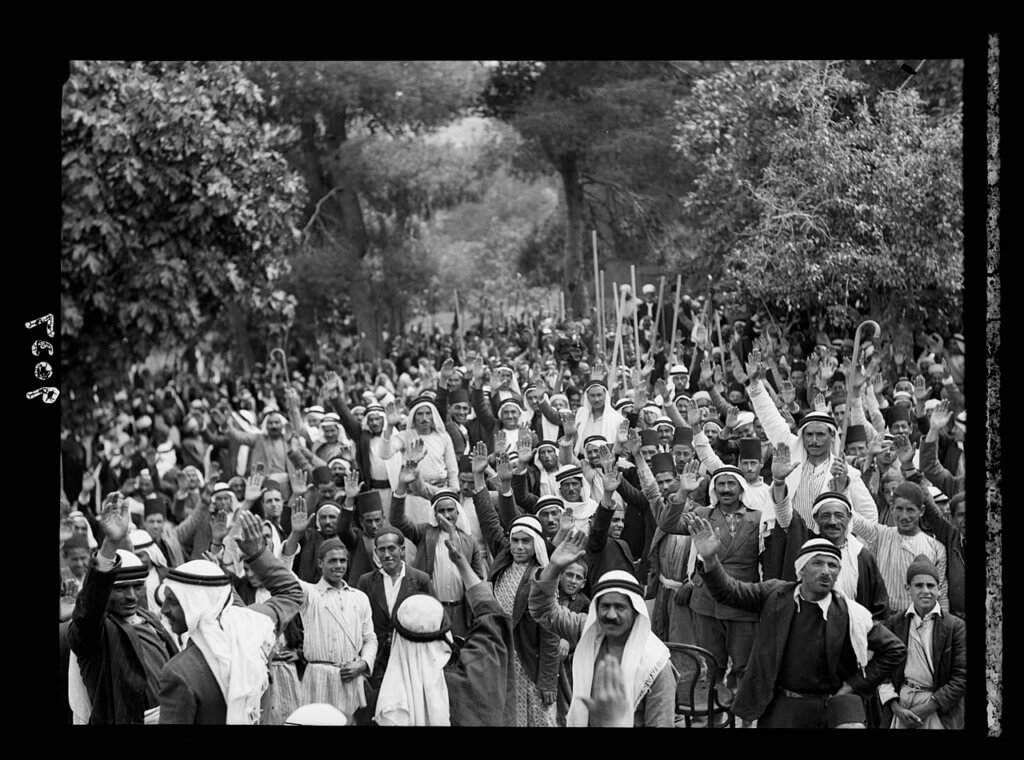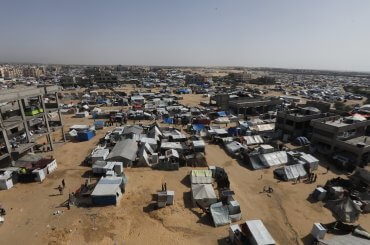Following the killing of Sheikh Izz-ad-Din al Qassam in 1935, Historical Palestine was engulfed by a rebellion the likes of which it has arguably not seen since. Though it moved in phases, and became centered in different locations, the Great Revolt of 1936-39 is looked to with admiration by the Palestinian people as it required the full might of the British mandatory forces and the Zionist militias to quell. What made the rebellion so potent was that it unified the peasantry with the urban elite in a common goal against the British mandate and the establishment of a Zionist state in Palestine. Such a unified front requires years of counter insurgency work dedicated to splitting coalitions, dividing opinions, and striking fear into the hearts of those who dare speak out. While the British and the Zionist militias had the will to eventually put the Revolt down, the Israelis today do not. If the divided Palestinian factions and groups come together as they did in 1936, there will be a rebellion the likes of which will eclipse the First Intifada.
The classic liberal thinking is that the world bends towards justice, and that you can only keep a people oppressed for so long. Examples around the world, involving the near extermination of indigenous people, beg to differ. An occupying force can extinguish national sentiments and can take the land. It just requires the will, the brutality, and the longevity.
![Palestinian Arab man being searched by British troops in Jaffa, 1936 (Photo: Matson Registers, v. 1, [1934-1939])](https://mondoweiss.net/wp-content/uploads/2021/05/palestine-disturbances-1936-jaffa-along-the-sea-front-natives-being-searched-bf45a7.jpg)
The Israeli’s greatest strength is their ability to manage the Palestinian people. They have allowed for the sporadic releases of pressure without having it spill over into a full-scale rebellion since the end of the Second Intifada in 2005. Over the past 20 years, the Israelis have allowed the Palestinians to become absorbed in the dream of a Palestinian state, to become disillusioned, to become divided, and ultimately to become despondent. Currently at a historical low, most young Palestinians have limited hope for a future with genuine autonomy. In this regard, the Israeli ability to manage has thus been too successful. For a people to be properly controlled, there must at least be a carrot to offer. With the land largely taken, an impotent and corrupt Palestinian Authority, and little hope for a brighter day, Israel has managed itself into a potential revolt.
At this current moment, there are protests in Palestinian-majority cities inside of Israel the likes of which haven’t been seen since October 2000; there are armed groups firing on Israeli soldiers in the West Bank; and there is a unified front from the armed factions in Gaza. In short, there is the potential for a revolt akin to that of 1936.
At this current moment, there are protests in Palestinian-majority cities inside of Israel the likes of which haven’t been seen since October 2000; there are armed groups firing on Israeli soldiers in the West Bank; and there is a unified front from the armed factions in Gaza. In short, there is the potential for a revolt akin to that of 1936. For the large part, Ramallah remains peaceful and the centers of wealth and privilege across the West Bank remain calm. Though, Abbas and his cronies must know that their impotence is on full display and will seek to insert themselves in a way that is palatable to their European and American funders.
Today, the disposition of the dominant force is radically different to that of the British and the Zionists. Israel is a divided society, both politically and ideologically. Parties are jockeying to try and form government, full well knowing that any operation seeking to return quiet will need results quickly or face the backlash of the Israeli street. There is no stomach for the kind of violence that was employed by the British, and there is insufficient strategic vision flowing from a political apparatus that has become so accustomed to easy and temporary solutions.
While it is still far too early to claim that the Third Intifada is upon us, the pieces are in play and the Israelis are showing themselves to be unprepared to answer the moment. Operation Protective Edge began because of 200 rockets and ended as a strategic failure. Over 1,700 rockets have flown out of Gaza in the past few days, with no full-scale mobilization in sight. For all their amazing counterintelligence, and their surveillance apparatus, the Israelis are completely unprepared and unable for a situation where their managerial skills are rendered useless. They simply cannot control the Palestinians inside Israel, the West Bank, Gaza, and Jerusalem at the same time, and they know it.
Strangely enough, just like in 1936, the colonizer is on the back foot in the face of unity and desperation.



The most galling thing about the situation is that Israel COULD have had all the things it wanted for its military security as long as it was willing to forgo its dreams of a “greater Israel”. It wants military bases on the western side of the Jordan river? Check that box – all the signs indicate that Palestinian negotiators were willing to give them that (this is all documented in excruciating detail in Jerome Slater’s “Mythologies Without End”) Israel wants a “demilitarized” Palestinian state, a state without heavy weapons? Check. Israel wants to limit Palestinian immigration to a token number – maybe 10,000 – to Israel “proper”? Check. Instead they chose Greater Israel and apartheid.
The people united may never be defeated, but the people DIVIDED will ALWAYS be defeated. And Israel has worked hard, and successfully, to divide the Palestinians. And decapitate their leadership. If there are leaders for the present uprising, we don’t know who they are, and that’s a good thing.